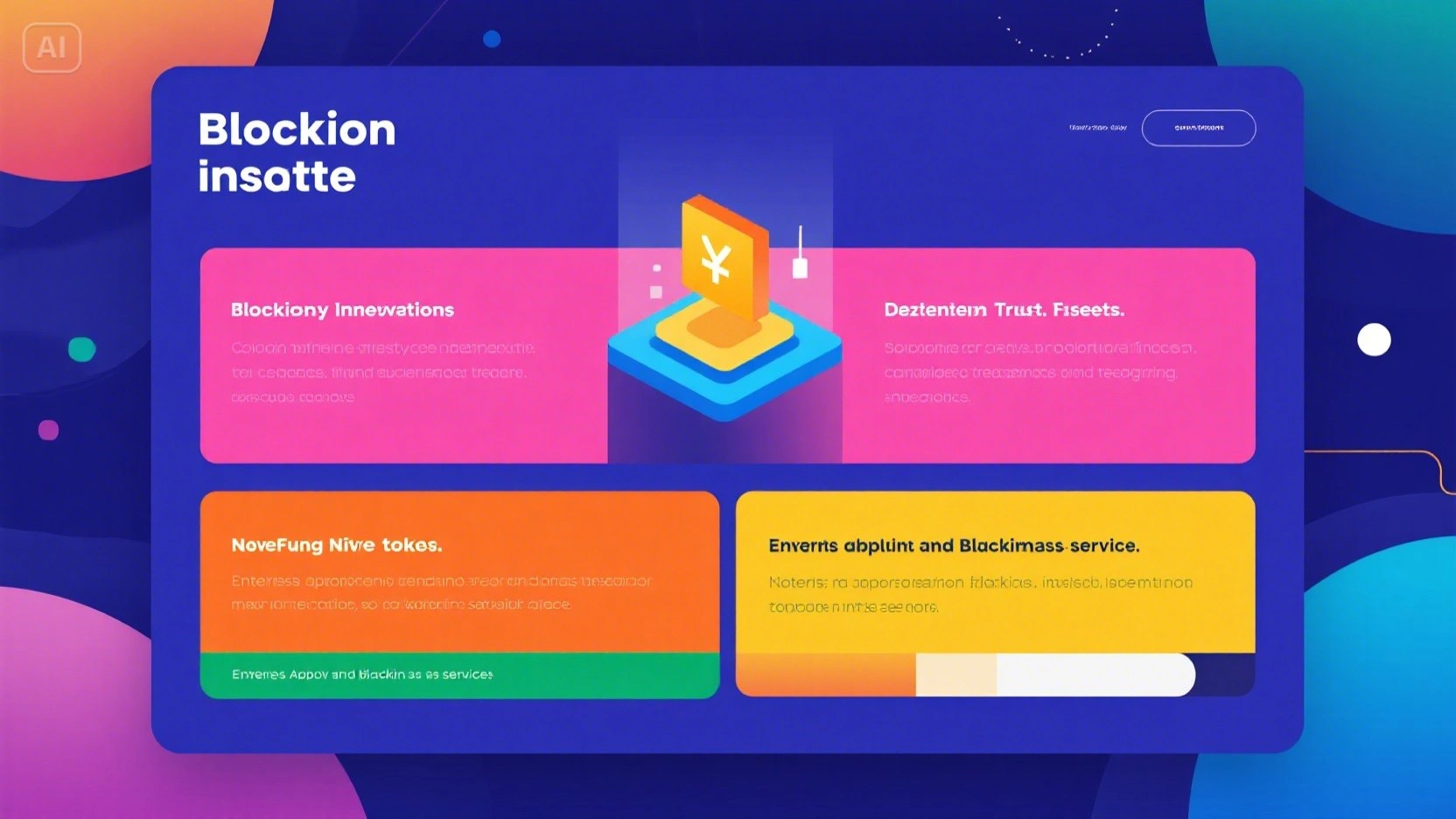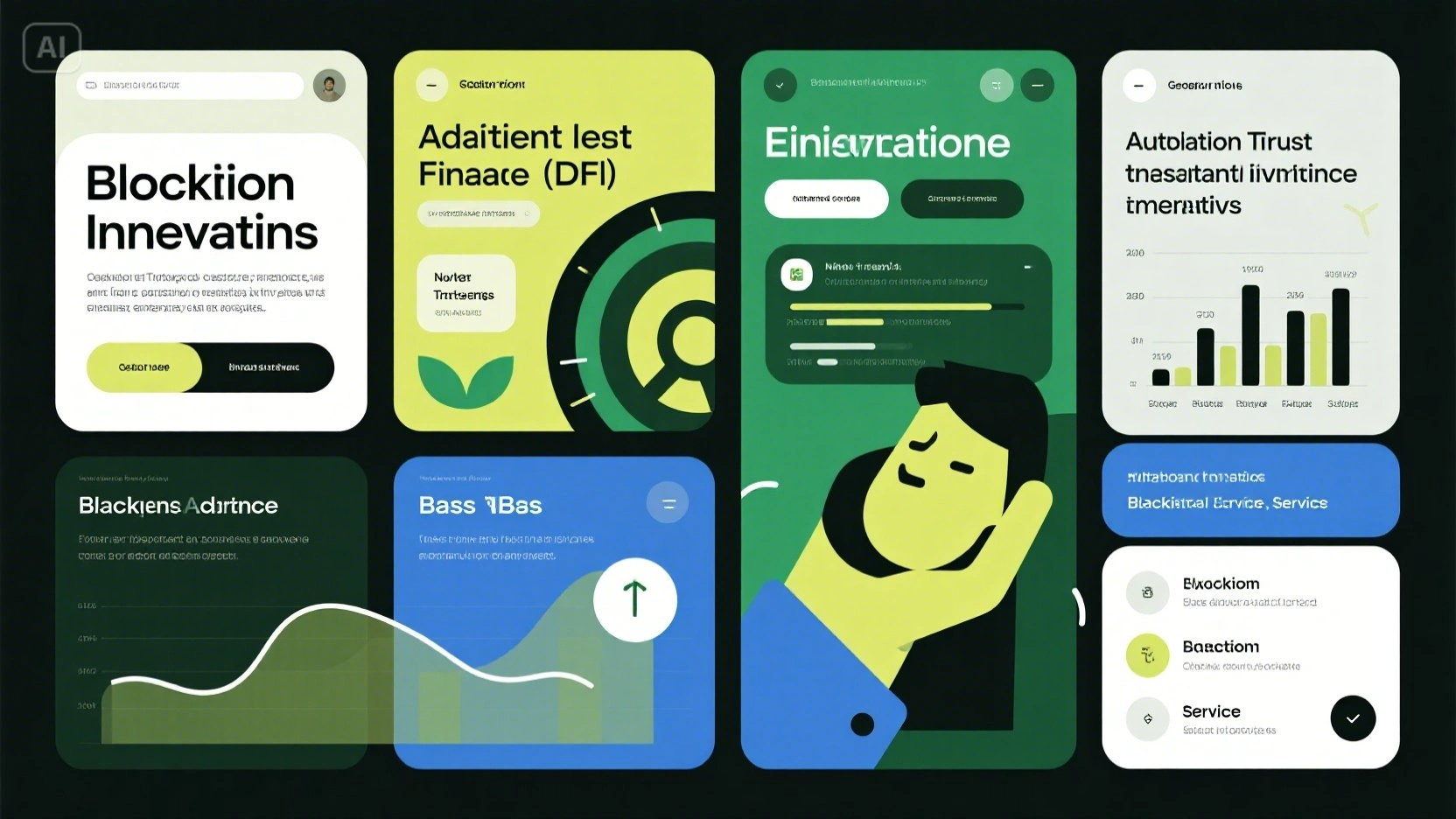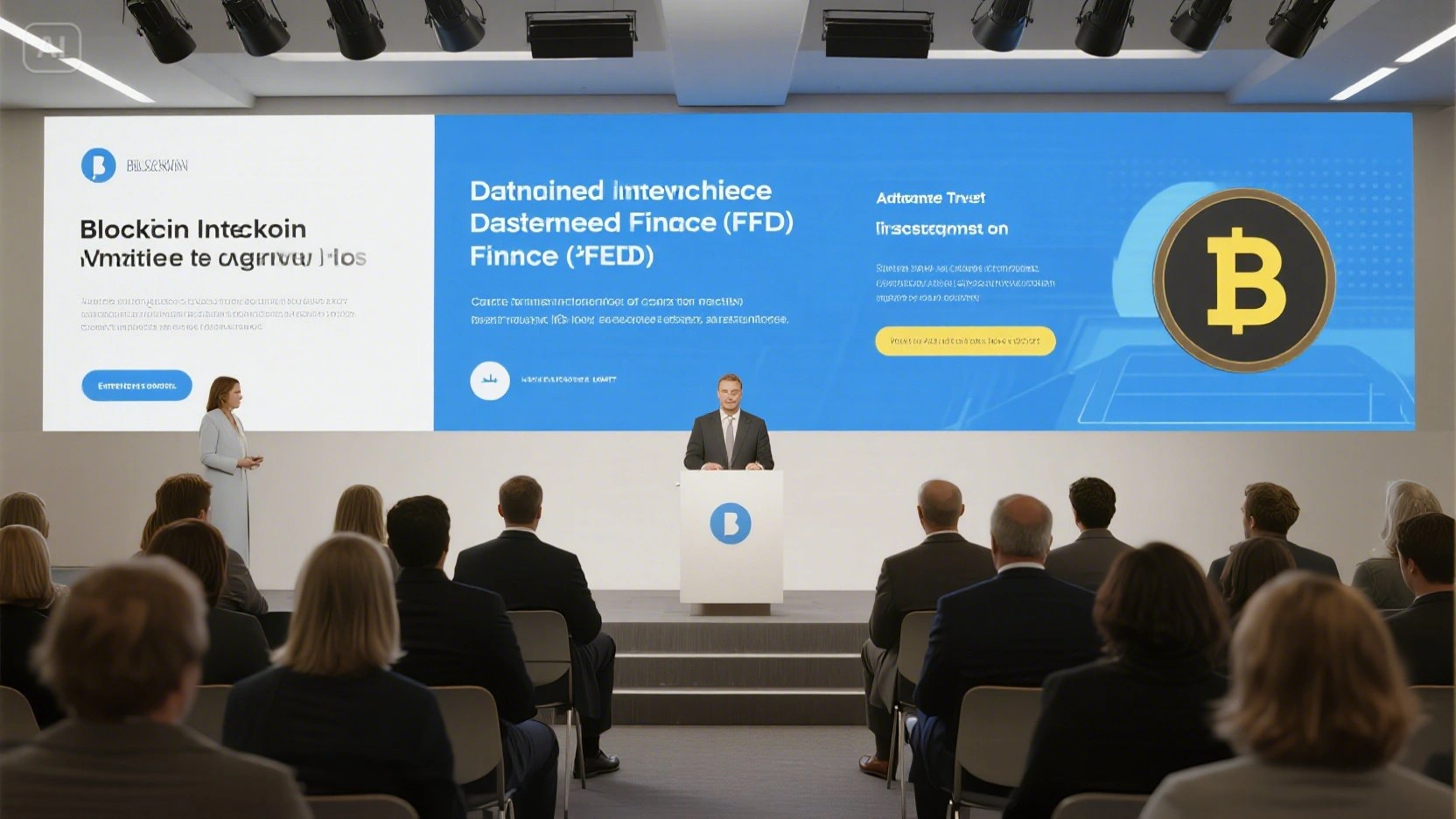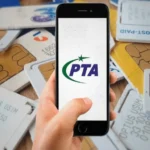Over the past few years, the use of blockchain technology has underscored more than the invention of cryptocurrency to make it as one of the most potential inventions in the digital age. Having a natural decentralized character, being immutable, and transparent, blockchain has already had an impact on the reshaping of such industries as finance and healthcare, supply chains, and entertainment. With organizations demanding more security, efficiency, and confidence in their activities, blockchain has offered revolutionary measures that surpass orthodox domains.
Decentralized Finance (DeFi)
Above all innovations of the blockchain, perhaps, there rises decentralized finance, more often known as DeFi. DeFi gives the end users a chance to avail financial services to lend, borrow, trade and save without having to stick to conventional banks or financial institutions. Mainly constructed on Ethereum, and other protocols that facilitate smart contracts, DeFi protocols such as Uniswap, Aave, and Compound enable the user to work directly in financial protocols, and they are transparent and free of intermediaries.
DeFi has created impressive inclusiveness particularly in areas that have little access to money. The only necessary thing that people can now use to access a global financial ecosystem is a smartphone and an internet connection. Besides, DeFi applications are not only open-source but also programmable stimulating constant innovation and community-driven development.
Automating Trust and Transactions
Another foundation of the blockchain innovation is its smart contracts, self-executable, coded onto blockchains. These digital contracts automatically perform actions when the certain conditions are fulfilled and no intermediate parties should be used and the risk of fraud or manipulation is minimized.
Use of smart contracts is not restricted to the field of finance. They are capable of automatic sales of property in the real estate industry. In a case of insurance, instant claims can take place the moment conditions are confirmed. The royalties would be automatically and fairly shared to the artists in the field of entertainment. Smart contracts are required to streamline costs associated with administration and increase efficiency in any industry due to the precision and automation that smart contracts provide.
Supply Chain Transparency and Traceability
The management of supply chains has always suffered an obscurity, wastes, and frauds. Blockchain is an innovation that is transforming this sector by end-to-end goods and materials transparency and traceability. Firms are now able to track the entire chain of a product, including procurement of raw materials, finishing delivery, through a blockchain ledger and establish an irrefutable track record.
This type of innovation has been specifically useful in areas as food, fashion and pharmaceuticals, where provenance and safety are paramount. As a case in point, Walmart has introduced blockchain to trace their food products and in the process, it has cut down the time required to track their produce down to 2.2 seconds, which was once done in six days. Blockchain can significantly increase visibility and accountability, assisting companies in creating trust among the consumers and adhering to regulation.
Tokenization of Assets
Another benefit of Blockchain is the tokenization of assets both physical and digital that represent assets on a blockchain that can be exchanged as a tradable representative as digital tokens. This may be property, painting, company stock, and intellectual property. The liquidity offered through tokenization has an advantage of being able to sell a portion, or fraction of the item, as well as allowing the asset to be traded 24/7 days, as opposed to only having access to the asset during business week. In the case of assets such as property, historically this asset has low liquidity as it can only be transacted during business hours, but with tokenization, it becomes a highly liquid asset.
As an example, owners may want to sell a whole commercial building, but they can now offer tokens, which denote fractional ownership of the building, and several investors can purchase them. The exchange of tokens using blockchain technology allows trading these assets with any corner of the world, opening investment opportunities and making finance democratic.
Non-Fungible Tokens (NFTs)
The non-fungible tokens, or NFTs, have become extremely popular recently due to the fact that it is a special type of ownership in the digital world enjoyed mostly with art, music, gaming, and collectibles. The NFTs are unique and authenticated assets, and the ownership of these assets is stored within a blockchain. This invention has brought with it new ways of revenue generation to the creators as they can now generate revenue directly due to the digital content without the traditional gatekeepers. NFTs have provided innovation concepts not only to the creative industry but also mechanisms of payment of royalties, which are incorporated into the tokens. Creators of the arts and the musicians will now get a share of resale earnings when their works are transferred to other owners now and that is a guarantee of continuous earnings to the artists.
Enterprise Adoption and Blockchain as a Service (BaaS)
In anticipation of blockchain potential, large companies have already started to use it in their business processes. Blockchain production in the form of Blockchain-as-a-Service (BaaS) offers, such as those provided by such tech giants as IBM, Microsoft, and Amazon, allow businesses to create their own blockchain applications, host and deploy them without the necessity to set up the infrastructure themselves. The BaaS platforms make it convenient to experiment and incorporate the use of blockchain in other professions, including logistics, finance, healthcare, and government. Enterprise blockchain solutions are gaining momentum in defining the future of business processes not only in verifying digital identities of individuals to solving intellectual property right issues.
Environmental and Sustainable Innovations
With that knowledge of blockchain and energy consumption, especially proof-of-work (PoW) mining, rise, developers of new innovations have come up with more environmentally friendly options. Proof-of-stake (PoS) and other consensus protocols are energy-efficient protocols that provide a way to validate transactions. In 2022, as Ethereum shifted to a proof-of-stake mechanism, its energy usage fell more than 99% to become a model of environmentally responsible blockchain activities. In addition, blockchain is also changing how the world is going about its sustainability initiatives, including carbon credit monitoring, environmental compliance auditing, and the encouragement of eco-friendly behavior. Such projects show ways in which blockchain can be used to achieve international targets with regard to environmental sustainability.










